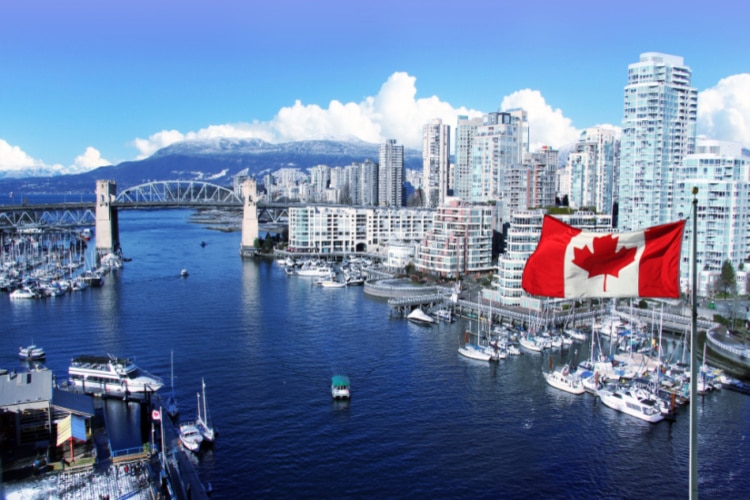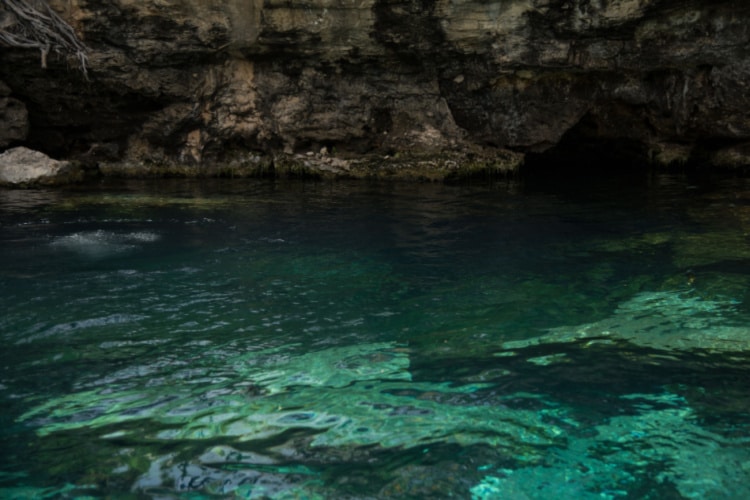Water pollution and safe tap water are viable concerns whether we live in Metro Vancouver or plan on visiting.
Vancouver’s tap water is safe to drink and meets all health and safety standards set by the water governing bodies. The city abides by strict water safety guidelines, and the Vancouver Health and Metro Vancouver athorities, are responsible for meeting these guidelines.
To ensure the standard remains intact and that Vancouver tap water remains safe to drink, the department performs vital functions such as:
- Daily water test at the source
- Tests water at 53 sampling stations
- Distributes the water through non-lead pipes
Vancouver residents can also access the public water quality reports.

Vancouver Water Quality Report: What Is in the Water?
There are three markers with which the Guidelines for Canadian Drinking Water Quality (GCDWQ) regulates drinking water quality. The latest and exceptionally detailed water quality report shows that the tap water in Vancouver meets all the set criteria in these markers.
- Microbiological parameters pertaining to pathogenic organisms such as bacteria and viruses
- Chemical and physical parameters pertaining to disinfectants, disinfection byproducts, heavy metals, and minerals
- Radiological parameters pertaining to radioactive elements like radium, cesium, and uranium
Because most of the water comes from rainfall, it contains very little mineral content and is very soft. Additionally, the water goes through a rigorous filtration process in water treatment plants before being distributed to citizens’ households. This process leaves no chemical, physical, bacteriological, or radiological contaminants in the water.
The final stage of the water treatment in Vancouver is disinfection through chlorination — the only problematic contaminants found in the water. These contaminants are within the legal limits the GCDWQ sets, but it’s still best to be informed about them.
In water samples taken from stations near water treatment plants, the chlorine levels reach 1.5 parts per million. Although there’s no health regulation or concern regarding chlorine, it’s an aesthetic nuisance since it gives the water a cloudy appearance and chemical taste and odor. So, you may consider purchasing a water filter for chlorine removal to reduce chlorine levels in your water.
High chlorine levels also indicate high disinfection byproduct presence, namely total trihalomethanes (20 ppb to 30 ppb in Vancouver’s tap water) and haloacetic acids (20 ppb to 30 ppb). The GCDWQ limits for these impurities are 100 ppb and 80 ppb, respectively, but the United States Environmental Protection Agency’s public safety goal for both is zero. So, a water filter that’s effective against disinfection byproducts may be of interest to you.
Interesting Fact: Vancouver has never added fluoride to its drinking water. However, the water contains trace elements of naturally occurring fluoride (less than 0.05 mg/l), which is perfectly safe. Still, those who want 100% fluoride-free water can purchase a fluoride water filter.
Is The Water in Vancouver Hard or Soft?
Water in Vancouver comes mainly from rainfall, which makes it very soft, measuring 0.3 grains per gallon. Soft water means water with less than 60 mg/liter of minerals. Medium hardness is between 60 to 120 mg/liter, and high hardness falls into the 120 to 180 mg/liter range.
Where Does Vancouver Get Its Water From?
Most of the drinking water in Vancouver comes from rainfall and snowmelt. This water collects in three watersheds and travels through underground aquifers naturally to its destination.
The rainwater doesn’t take long to pool in rock formations to pick up mineral sources. Therefore, it remains soft.

To prevent water contamination, the watersheds in Capilano, Seymore, and Coquitlam are off-limits to the public. Capilano and Seymore’s watersheds are prone to picking up heavier particles which filtration devices remove. The Coquitlam watershed requires little filtration.
Vancouver is a wet city. It ranks number four for rainfall accumulation and receives 57.3 inches (1457 mm) annually.
How Tap Water Is Treated in Vancouver
Vancouver’s drinking water is safe. Safety measures help prevent outbreaks and the spreading of water-borne pathogens that cause diseases. All water sources are prone to an occasional or accidental invasion of pathogens from human and animal sewage or other sources of contamination.
Health Canada is an essential proponent in protecting the health of Canadians and establishes guidelines that each province or territory must meet. Water suppliers are responsible for delivering safe drinking water under the Drinking Water Protection Act and Drinking Water Regulation. Additionally, water suppliers must meet operating permit standards.
Water suppliers must treat the water and continually monitor and test the quality for contamination. If a problem occurs, they must alert the public immediately.
Providing safe drinking water to residents also involves environmental health officers, public health, and medical health staff to ensure these regulations meet the water laws.
The Improved Water Filtration Plant
Metro Vancouver relies on its new water filtration plant. It’s situated downstream of the Seymour Reservoir in the Lower Seymour Conservation Reserve. This facility will also treat the water from the Capilano Reservoir.
The water plant relies on the best methods of filtration to treat water clarity and destroy giardia and cryptosporidium, microorganisms responsible for illnesses. This innovative filtration process helps reduce the volumes of chlorine required for the same disinfecting operation used by old-fashioned methods.
Since less chlorine is used to treat fewer harmful organics, fewer by-products are needed for the same result. Vancouver residents notice improved taste quality, clearer color, and less odor.
Do They Have the Cleanest Tap Water?
Canada traditionally ranks in the top in the list of the world’s best drinking water. Clearbrook, a small community in Abbotsford, BC, formerly a part of Metro Vancouver, has received many gold awards for its pristine tap water.
Tap water in Vancouver undergoes rigorous testing, must meet many standards, and is constantly monitored. Vancouverites rest assured that they drink some of the best tap water in the world.
Canadian water ranked fourth in an international survey measuring the water quality index under OECD (Organization for Economic Co-operation and Development). That ranking includes the standards Vancouver, and its suburbs must meet according to regulation.
Conclusion
The federal government regulates water in Canada and ensures that all Canadians have access to quality tap water. Tap water for Vancouver is treated in a water treatment facility and tested rigorously and daily to ensure no contaminants or lethal pathogens enter the water supply.
Metro Vancouver and its water-sharing partners provide quality water that meets strict standards and follows federal law guidelines, thereby providing some of the best tap water available anywhere to the Vancouver population.
Hi Scott,
For water treatment, does the City of Vancouver use chlorine or chloramine? I’ve read both, but would like an authoritative answer.
Thanks,
Karl
Hi Karl, thanks for reading. The City of Vancouver has stated that it is their practice to use chlorine to treat the water. I have not seen any mention of chloramine and it is not stated at all in their publicly available water quality report that they issue, which you can find on our website in the same article you’ve read.